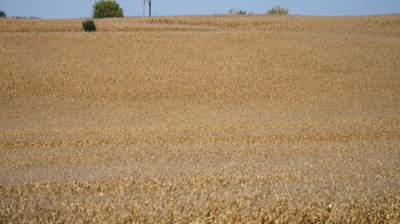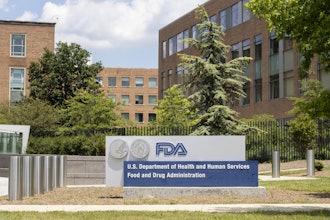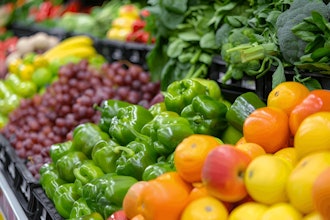
The price of wheat, corn and other commodities that make up the basis for much of the world’s food supply fell sharply over the summer.
It’s a welcome signal for consumers dealing with high grocery bills and investors hoping to see inflation loosen its grip on the broader economy. Wheat prices are down roughly 40% and corn prices have slipped about 25% since the spring.
“It should help, it’s just a question of how long that is sustainable,” said Tom Martin, senior portfolio manager with Globalt Investments. “As we slow down, and the economy seems generally to be slower, you get less inflationary pressures.”
Surging food and energy prices have fueled the hottest inflation in four decades this year. Steady demand combined with constricted supplies started inflation on its upward path. Russia’s invasion of Ukraine in February worsened things by choking off production and exports of wheat and other crops, along with oil and natural gas.
Now prices are falling as supply and demand start to balance out amid the global economic slowdown. Ukraine and Russia have reached a deal on grain exports, helping to further ease global supply shortages. Ukraine exports roughly 10% of the world’s wheat and corn.
The U.S. Department of Agriculture forecasts higher wheat production this year and the potential for a record soybean harvest.
Falling commodity prices could also help major food producers, which have been dealing with higher costs to make things like cereal and other packaged foods. Both Conagra and Mondelez have seen profit margins fall over the last several quarters.
Conagra CEO Sean Connolly said another cycle of extreme inflation would likely push down margins, but slowing inflation or deflation could lift profits to the higher end of the company's target.
“These are volatile times,” he told investors in a conference call, following the company's most recent financial results. “So we can’t tell you exactly where we will land.”
Investors are closely watching falling commodity prices as they try and gauge inflation’s path forward and whether the Federal Reserve will ease up on its aggressive interest rate hikes.
The U.S. economy shrank during the first half of 2022, but consumer spending remains solid and unemployment is at a record low.
The Fed has signaled that it intends to continue raising interest rates until it is sure that inflation is starting to cool off. Wall Street is hoping that a sustained drop in commodity prices, from energy to food, will result in inflation peaking and starting to cool.






















